
Several aid workers, including foreigners, delivering food to starving civilians in Gaza were killed in an Israeli military strike. Passports from Britain, Poland, and Australia were found at the scene. World Central Kitchen, a nonprofit providing meals to disaster-struck regions, was identified as the organization the workers were affiliated with. The founder, Jose Andres, confirmed the deaths and called for an end to indiscriminate killings and restrictions on humanitarian aid. Australian Prime Minister Anthony Albanese identified one of the victims as Lalzawmi Zomi Frankcom, who was volunteering overseas to provide aid in Gaza.

Australian PM Anthony Albanese has confirmed that an Australian citizen was killed in Gaza while delivering aid with the World Central Kitchen organization. The convoy they were traveling in was hit by an Israeli airstrike. The Australian government is urgently investigating the incident, emphasizing the need to protect civilian lives in the conflict. Gaza medical officials reported that a total of 4 foreign aid workers were killed in the apparent airstrike after delivering food to north DEIR AL-BALAH.

The first aid ship, carrying 200 tonnes of food, arrived in Gaza through a new maritime corridor from Cyprus to alleviate severe food shortages. Workers from World Central Kitchen are facilitating the aid distribution. The ship's arrival sparked violence as Israeli forces opened fire, leading to casualties. Hamas proposed a six-week truce and hostage exchange with Israel. Pressure mounts for more aid as over two million Palestinians in Gaza suffer from famine.

The Gaza Strip is experiencing a humanitarian crisis as a result of the Israel–Hamas war. The crisis includes both a famine and a healthcare collapse. At the start of the war, Israel implemented a complete blockade on the Gaza Strip, which has resulted in significant shortages of fuel, food, medication, water, and essential medical supplies. This siege resulted in a 90% drop in electricity availability, impacting hospital power supplies, sewage plants, and shutting down the desalination plants that provide drinking water. Widespread disease outbreaks have spread across Gaza.Heavy bombardment by Israeli airstrikes caused catastrophic damage to Gaza’s infrastructure, further deepening the crisis. By mid-November, Israel had dropped the equivalent of two nuclear bombs on Gaza. The Gaza Health Ministry reported over 4,000 children killed in the war's first month. UN Secretary General António Guterres stated Gaza had "become a graveyard for children."Organizations such as Doctors Without Borders, the Red Cross, and a joint statement by UNICEF, the World Health Organization, the UN Development Programme, United Nations Population Fund, and World Food Programme have warned of a dire humanitarian collapse. On November 8, UN Human Rights chief Volker Turk described the Rafah Crossing as "gates to a living nightmare."

A three-ship convoy carrying 400 tons of food and supplies, organized by World Central Kitchen, departed from Cyprus to Gaza to address concerns of hunger in the region. The convoy includes ready-to-eat items and traditional Ramadan foods. The United Nations warns of a potential famine in northern Gaza, with 1.7 million people displaced and lacking essentials. The delivery is part of ongoing aid efforts by World Central Kitchen amid challenges in Gaza, including destruction of infrastructure and casualties from the conflict. The convoy also highlights geopolitical tensions and the need for increased humanitarian aid.

José Ramón Andrés Puerta (Spanish pronunciation: [xoˈse raˈmon anˈdɾes ˈpweɾta]; born 13 July 1969) is a Spanish-American chef and restaurateur. He owns restaurants in several cities around the United States, and has won a number of awards, both for his cooking (including several James Beard Awards), and for his humanitarian work. He is a professor and the founder of the Global Food Institute at George Washington University.Andrés is the founder of World Central Kitchen (WCK), a non-profit devoted to providing meals in the wake of natural disasters. A Spanish-born and raised cook, he is often credited with bringing the small plates dining concept to America. He was awarded a 2015 National Humanities Medal at a 2016 White House ceremony for his work with World Central Kitchen. In addition, he has received honorary doctorates from Georgetown University, George Washington University, Harvard University, and Tufts University. In March, 2022 he was named as co-chair of the United States President's Council on Sports, Fitness, and Nutrition.

World Central Kitchen (WCK) is a not-for-profit non-governmental organization devoted to providing meals in the wake of natural disasters. Founded in 2010 by chef José Andrés, the organization prepared food in Haiti following its devastating earthquake. Its method of operations is to be a first responder and then to collaborate and galvanize solutions with local chefs to solve the problem of hunger, immediately following a disaster.

A Spanish ship named Open Arms, carrying 200 tonnes of food from US charity World Central Kitchen, is set to depart from Cyprus for Gaza in the next few days. The ship will use a newly opened shipping route to reach an undisclosed location off the coast of Gaza, where aid will be distributed by the World Central Kitchen. European Commission President Ursula von der Leyen announced the establishment of a maritime aid corridor from Cyprus to Gaza, with the involvement of multiple countries including the US, United Arab Emirates, and United Kingdom.

On the evening of 27 October 2023, Israel launched a large-scale invasion of the Gaza Strip, with the stated goals of eliminating and destroying Hamas, a military and political movement which led an attack against Israel earlier in October, and to free hostages taken by Hamas. Following the attack, Israel declared a state of war, tightened its blockade, ordered the evacuation of the northern Gaza Strip, and launched "Operation Swords of Iron".More than 30,000 Palestinians have been killed in Gaza since the start of the Israeli operation, including over 12,500 children and 7,000 women, with another 7,000 people missing and presumed dead under the rubble of destroyed buildings. By mid-December Israel had dropped 29,000 munitions on Gaza, destroying or damaging 70 percent of homes in the Strip. Experts say that the scale and pace of destruction in Gaza is among the most severe in recent history. During the invasion, Israel destroyed at least a third of Gaza's homes and hundreds of cultural landmarks, and desecrated dozens of cemeteries in the strip.A severe humanitarian crisis has developed, with healthcare in a state of collapse, shortages of food, clean water, medicine and fuel due to the blockade, electricity and communications blackouts, and the UN warning of potential famine. It was widely reported that there is "no safe place in Gaza" as Israel struck areas it had previously told Palestinians to evacuate to. The widespread civilian deaths have led to accusations of war crimes against both Israel and Hamas. Nearly all of Gaza's 2.3 million population have been internally displaced and around 250,000–500,000 Israelis were internally displaced, while thousands of Palestinians have been detained by Israel, and Israel has stated it lost 225 additional soldiers in its invasion as of 4 February 2024.As a result of the invasion, South Africa instituted proceedings against Israel in the International Court of Justice (ICJ), charging that Israel was guilty of committing a genocide, and requesting that the ICJ render provisional measures of protection.

Rights groups claim Israel is denying Palestinians in Gaza access to food and water, leading to acute food shortages and rising child mortality rates. Aid groups accuse Israel of using hunger as a weapon in the conflict with Hamas. The situation in Gaza is dire, with famine looming, especially in the north where 70% of the population is on the brink of starvation. International aid groups face obstacles in delivering assistance, with the Israeli military denying accusations of purposefully starving the civilian population. Israel asserts its role is to facilitate aid, not distribute it.

Israeli troops have pulled out of al-Shifa hospital in Gaza City after a raid two weeks ago, where the Israel Defense Forces (IDF) suspected Hamas was using it as a base. Witnesses reported heavy fighting and tanks surrounding the facility during the raid. The World Health Organization (WHO) confirmed 21 patient deaths in the hospital, expressing concern over the deteriorating conditions and lack of supplies. Israeli Prime Minister Benjamin Netanyahu praised the soldiers' efforts, describing the hospital as a "terrorist lair." Tensions rise between the U.S. and Israel over Netanyahu's plans, while the region faces escalating conflicts.

Tens of thousands protested in Israel urging a ceasefire deal to free hostages held by Hamas and calling for an early election. Benjamin Netanyahu underwent successful hernia surgery as hostage negotiations resumed. Protesters clashed with police in Jerusalem and Tel Aviv. Reports suggest the US and Israel are discussing proposals to prevent a military ground offensive in Gaza. The war with Hamas has resulted in about 1,160 Israeli deaths and at least 32,782 Palestinian deaths, mainly women and children.

The 2014 Gaza War, also known as Operation Protective Edge (Hebrew: מִבְצָע צוּק אֵיתָן, romanized: Miv'tza Tzuk Eitan, lit. 'Operation Strong Cliff'), and Battle of the Withered Grain (Arabic: معركة العصف المائكول, romanized: Mʿa-rakkat Al-ʿasf Al-Ma’kool) was a military operation launched by Israel on 8 July 2014 in the Gaza Strip, a Palestinian territory that has been governed by Hamas since 2007. Following the kidnapping and murder of three Israeli teenagers in the West Bank by Hamas-affiliated Palestinian militants, the Israel Defense Forces (IDF) initiated Operation Brother's Keeper, in which some 350 Palestinians, including nearly all of the active Hamas militants in the West Bank, were arrested. Hamas subsequently fired a greater number of rockets into Israel from the Gaza Strip, triggering a seven-week-long conflict between the two sides. It was one of the deadliest outbreaks of open conflict between Israel and the Palestinians in decades. The combination of Palestinian rocket attacks and Israeli airstrikes resulted in over two thousand deaths, the vast majority of which were Gazan Palestinians. This includes a total of six Israeli civilians who were killed as a result of the conflict.The Israeli military operation aimed to stop rocket fire into Israel from the Gaza Strip. Conversely, Hamas' attacks aimed to bring international pressure onto Israel with the strategic goal of forcing the latter to lift the Israeli–Egyptian blockade of the Gaza Strip; among its other goals were to end Israel's military offensive, obtain a third party to monitor and guarantee compliance with a ceasefire, release Palestinian political prisoners and overcome its isolation. According to the BBC, Israel launched airstrikes on the Gaza Strip in retaliation to the rocket attacks by Hamas, Palestinian Islamic Jihad (PIJ), and other Palestinian militant groups.On 7 July, after seven Hamas militants died in a tunnel explosion in Khan Yunis that was caused either by an Israeli airstrike (per Hamas, Nathan Thrall, BBC, and a senior IDF official) or an accidental explosion of their own munitions (per the IDF), Hamas assumed responsibility for rockets fired into Israel, and subsequently launched 40 more rockets towards Israel. The Israeli aerial operation officially began the following day, and on 17 July, it was expanded to include a full-scale ground invasion of the Gaza Strip with the stated aim of destroying Gaza's tunnel system; the Israeli ground invasion ended on 5 August. On 26 August, an open-ended ceasefire was announced. By this time, the IDF reported that Hamas, PIJ, and other Palestinian militant groups had fired 4,564 rockets and mortars into Israel, with over 735 projectiles having been intercepted mid-flight and shot down by Israel's Iron Dome. Most Gazan mortar and rocket fire was inaccurate, and consequently hit open land; more than 280 projectiles had landed within the Gaza Strip, and 224 had struck residential areas. Palestinian rocketry also killed 13 Palestinian civilians in Gaza, 11 of them children. The IDF attacked 5,263 targets in the Gaza Strip; at least 34 known tunnels were destroyed and two-thirds of Hamas's 10,000-rocket arsenal was either used up or destroyed.Between 2,125 and 2,310 Gazans were killed during the conflict while between 10,626 and 10,895 were wounded (including 3,374 children, of whom over 1,000 were left permanently disabled). Gazan civilian casualty estimates range between 70 percent by the Gaza Health Ministry, 65 percent by the United Nations' (UN) Protection Cluster by OCHA (based in part on Gaza Health Ministry reports), and 36 percent by Israeli officials. The UN estimated that more than 7,000 homes for 10,000 families were razed, together with an additional 89,000 homes damaged, of which roughly 10,000 were severely affected by the bombing. Rebuilding costs were calculated to run from US$4–6 billion over the course of 20 years. 67 Israeli soldiers, 5 Israeli civilians (including one child) and one Thai civilian were killed while 469 Israeli soldiers and 261 Israeli civilians were injured. On the Israeli side, the economic impact of the operation is estimated to have had an impact of NIS 8.5 billion (approximately US$2.5 billion) and a GDP loss of 0.4 percent.

An armed conflict between Israel and Hamas-led Palestinian militant groups has been taking place chiefly in and around the Gaza Strip since 7 October 2023, when Hamas launched a surprise attack on southern Israel from the Gaza Strip. After clearing Hamas militants from its territory, the Israeli military embarked on an extensive aerial bombardment of the Gaza Strip followed by a large-scale ground invasion beginning on 27 October. Clashes have also occurred in the Israeli-occupied West Bank and with Hezbollah along the Israel–Lebanon border. The hostilities constitute the fifth war of the Gaza–Israel conflict since 2008 and are part of the broader Israeli–Palestinian conflict. They are considered to be the most significant military escalation in the region since the Yom Kippur War 50 years earlier.The Hamas offensive involved 3,000 militants breaching the Gaza–Israel barrier and attacking Israeli communities and military bases. During this attack, 1,139 Israelis and foreign nationals were killed, while 253 Israelis and foreigners were taken captive to the Gaza Strip. The attack was proclaimed as a response to the continued Israeli occupation of the Palestinian territories, the expansion of illegal Israeli settlements, the prospect of Arab–Israeli normalization, and the plight of Palestinian refugees and prisoners. In response, Israel declared a state of war, tightened its existing blockade of Gaza and launched one of the most severe bombing campaigns in history, before commencing the ground invasion on 27 October. Israeli forces laid siege to Gaza City on 2 November and moved south to attack Khan Yunis a month later on 3 December; both sieges remain ongoing. Israel's next objective is the capture of Rafah. An estimated 6,000-12,000 militants have been killed during the conflict, and Israel has lost over 200 soldiers during its invasion. A United Nations resolution calling for a humanitarian pause passed on 15 November; the seven-day truce took effect at the end of that month.A humanitarian crisis has developed in the Gaza Strip, with healthcare in a state of collapse, shortages of food, clean water, medicine and fuel due to the blockade, electricity and communications blackouts, and potential famine conditions. More than 30,000 Palestinians have been killed in Gaza during the conflict, including over 12,300 children and 8,400 women. Nearly all of Gaza's 2.3 million population have been internally displaced. The widespread civilian deaths have led to accusations of war crimes against both Israel and Hamas. In February 2024 576,000 people were "facing catastrophic levels of deprivation and starvation", stated The United Nations. More than 100 Palestinians were killed by Israeli troops that opened fire when huge crowds raced to pull goods off an aid convoy.The war has had significant international repercussions. Popular protests that primarily call for a ceasefire have occurred across the world. Israel's actions have been denounced by the Islamic world and much of the Global South; South Africa launched an International Court of Justice case alleging that Israel committed genocide. Israel has however received significant support from its traditional Western allies, especially the United States, which vetoed multiple UN Security Council resolutions calling for an immediate ceasefire. In response, Iran-backed militias have attacked American military bases in the Middle East, while the Yemeni Houthi movement attacked commercial ships they alleged were linked to Israel, incurring a military response from a number of countries.

A 19-year-old Palestinian worker from Hebron stabbed and wounded three people in a shopping mall near Ashdod, Israel. The attacker was neutralized by local police, and the victims, in serious condition, were taken to a nearby hospital. This incident is part of a series of recent attacks across Israel and the West Bank, following the Hamas attack on Israel in Gaza.

Police discovered human remains in "surf bags" on a rural property in Bungonia, south of Sydney, ending a search that shocked Australia. Police officer Beaumont Lamarre-Condon is charged with their murder. Australian Prime Minister Anthony Albanese paid tribute to the victims, with Mr. Baird remembered as a talented and caring man, and Mr. Davies hailed for his lust for life and love of travel. Friends and colleagues mourned their loss with candlelit vigils and heartfelt tributes.

The Gaza War, also known as Operation Cast Lead (Hebrew: מִבְצָע עוֹפֶרֶת יְצוּקָה), also known as the Gaza Massacre (Arabic: مجزرة غزة), and referred to as the Battle of al-Furqan (معركة الفرقان) by Hamas, was a three-week armed conflict between Gaza Strip Palestinian paramilitary groups and the Israel Defense Forces (IDF) that began on 27 December 2008 and ended on 18 January 2009 with a unilateral ceasefire. The conflict resulted in 1,166–1,417 Palestinian and 13 Israeli deaths. Over 46,000 homes were destroyed in Gaza, making more than 100,000 people homeless.A six month long ceasefire between Israel and Hamas ended on 4 November, when the IDF made a raid into Deir al-Balah, central Gaza to destroy a tunnel, killing several Hamas militants. Israel said the raid was a preemptive strike and Hamas intended to abduct further Israeli soldiers, while Hamas characterized it as a ceasefire violation, and responded with rocket fire into Israel. Attempts to renew a truce between Israel and Hamas were unsuccessful. On December 27, Israel began Operation Cast Lead with the stated aim of stopping rocket fire. In the initial air assault, Israel attacked police stations, military targets including weapons caches and suspected rocket firing teams, as well as political and administrative institutions, striking in the densely populated cities of Gaza, Khan Yunis and Rafah. After hostilities broke out, Palestinian groups fired rockets in retaliation for the aerial bombardments and attacks. The international community considers indiscriminate attacks on civilians and civilian structures that do not discriminate between civilians and military targets as illegal under international law.An Israeli ground invasion began on 3 January. On 5 January, the IDF began operating in the densely populated urban centers of Gaza. During the last week of the offensive (from 12 January), Israel mostly hit targets it had damaged before and struck Palestinian rocket-launching units. Hamas intensified its rocket and mortar attacks against mostly civilian targets in southern Israel, reaching the major cities of Beersheba and Ashdod for the first time during the conflict. Israeli politicians ultimately decided against striking deeper within Gaza amid concerns of higher casualties on both sides and rising international criticism. The conflict ended on 18 January, when the IDF first declared a unilateral ceasefire, followed by Hamas' announcing a one-week ceasefire twelve hours later. The IDF completed its withdrawal on 21 January.In September 2009, a UN special mission, headed by the South African Justice Richard Goldstone, produced a report accusing both Palestinian militants and the Israeli army of war crimes and possible crimes against humanity, and recommended bringing those responsible to justice. In 2011, Goldstone wrote that he does not believe that Israel intentionally targeted civilians in Gaza as a matter of explicit policy. The other authors of the report, Hina Jilani, Christine Chinkin, and Desmond Travers, stated that no new evidence had been gathered that disputed the report's findings. The United Nations Human Rights Council ordered Israel to conduct various repairs of the damages. On 21 September 2012, the United Nations Human Rights Council concluded that 75% of civilian homes destroyed in the attack were not rebuilt.

Tens of thousands of Israelis protest against the government's handling of the Israel-Hamas war, urging a cease-fire to release hostages held by Hamas and calling for early elections. Divisions have resurfaced over Prime Minister Benjamin Netanyahu's leadership despite initial unity after Hamas attacks. Efforts to bring home hostages following a weeklong cease-fire have stalled, with families expressing frustration and blaming Netanyahu for hindering negotiations. Netanyahu vows to invade Rafah despite pressure, but achieving goals remains challenging.

The Israeli military withdrew from its devastating raid on Gaza's largest hospital, Shifa, claiming victory in its battle against Hamas militants. However, accounts from observers and the World Health Organization reported civilian casualties and dire conditions inside the hospital, with 21 patients dying and others lacking medical care and supplies. The raid triggered days of fighting in the surrounding area.

Iran’s Islamic Revolutionary Guard Corps senior commander Mohammad Reza Zahedi was killed in an airstrike on Iran’s consulate building in Damascus, Syria. Between five and seven people were reportedly killed in the attack, alleged to be an Israeli airstrike, which destroyed the building. The incident has heightened tensions in the Middle East, with Iranian officials promising a harsh response and condemning it as a breach of international conventions.

Tens of thousands of Israelis marched in Jerusalem demanding increased efforts to free captives in Gaza and the removal of Prime Minister Benjamin Netanyahu. The protests, considered the biggest since the Gaza war in October, led to police using water cannons against the demonstrators. Families of the hundred or more captives held by Hamas in Gaza joined the protests alongside Netanyahu's opponents. The ongoing demonstrations call for the government to bring the captives home, with protesters holding signs criticizing Netanyahu for failing to protect the country from Hamas and demanding elections.

A video circulating on social media shows a London police officer suggesting swastikas at a pro-Palestinian rally should be taken in context, sparking outrage as a Jewish woman argues they are immediately antisemitic symbols. The officer cited the Public Order Act 2023 but faced criticism for downplaying the offensiveness of the swastika. The World Health Organization remains silent on Hamas using a Gaza hospital as a terror headquarters amidst rising tensions in the region.

US and Israeli officials, including Secretary of State Antony Blinken and national security advisers, discussed concerns about a possible invasion of Rafah in Gaza during a virtual meeting. Israel agreed to consider US concerns and continue discussions, despite wanting to defeat Hamas in Rafah. Talks were initially delayed after Israeli Prime Minister Netanyahu protested a UN Security Council resolution. Biden administration has faced backlash for arms transfers to Israel amid increasing criticism of civilian casualties in Gaza.

Israeli troops have withdrawn from Gaza's main hospital, Shifa Hospital, after a two-week raid, leaving behind significant destruction. Palestinian residents found bodies both inside and outside the facility upon their return. The military operation, described as one of the most successful in the six-month war, resulted in the killing of scores of Hamas and other militants, along with the seizure of valuable intelligence. The raid raised concerns about endangering civilians and further straining an already overwhelmed health sector in Gaza.

The Gaza Strip ( ; Arabic: قِطَاعُ غَزَّةَ Qiṭāʿ Ġazzah [qɪˈtˤɑːʕ ˈɣaz.za]), or simply Gaza, is a polity and the smaller of the two Palestinian territories (the other being the West Bank). On the eastern coast of the Mediterranean Sea, Gaza is bordered by Egypt on the southwest and Israel on the east and north.The territory came into being when it was controlled by Egypt during the 1948 Arab–Israeli war, and became a refuge for Palestinians who fled or were expelled during the 1948 Palestine war. Later, during the 1967 Six-Day War, Israel captured and occupied the Gaza Strip, initiating its decades-long military occupation of the Palestinian territories. The mid-1990s Oslo Accords established the Palestinian Authority (PA) as a limited governing authority, initially led by the secular party Fatah until that party's electoral defeat in 2006 to the Sunni Islamic Hamas. Hamas would then take over the governance of Gaza in a battle the next year, subsequently warring with Israel.In 2005, Israel unilaterally withdrew its military forces from Gaza, dismantled its settlements, and implemented a temporary blockade of Gaza. The blockade became indefinite after the 2007 Hamas takeover, supported by Egypt through restrictions on its land border with Gaza. Despite the Israeli disengagement, the United Nations (UN), the International Committee of the Red Cross, and many human-rights organizations continue to consider Gaza to be held under Israeli military occupation, due to what they consider Israel's effective military control over the territory; Israel disputes that it occupies the territory. The land, sea, and air blockade prevents people and goods from freely entering or leaving the territory, leading to Gaza often being called an "open-air prison." The UN, as well as at least 19 human-rights organizations, have urged Israel to lift the blockade. Israel has justified its blockade on the strip with wanting to stop flow of arms, but Palestinians and rights groups say it amounts to collective punishment and exacerbates dire living conditions.The Gaza Strip is 41 kilometres (25 miles) long, from 6 to 12 km (3.7 to 7.5 mi) wide, and has a total area of 365 km2 (141 sq mi). With around 2 million Palestinians on approximately 365 km2 (141 sq mi) of land, Gaza has one of the world's highest population densities. More than 70% of Gaza's population are refugees or descendents of refugees, half of whom are under the age of 18. Sunni Muslims make up most of Gaza's population, with a Palestinian Christian minority. Gaza has an annual population growth rate of 1.99% (2023 est.), the 39th-highest in the world. Gaza's unemployment rate is among the highest in the world, with an overall unemployment rate of 46% and a youth unemployment rate of 70%. The population has one of the highest literacy rates in the world. Gaza has throughout the years been seen as a source of Palestinian nationalism and resistance.
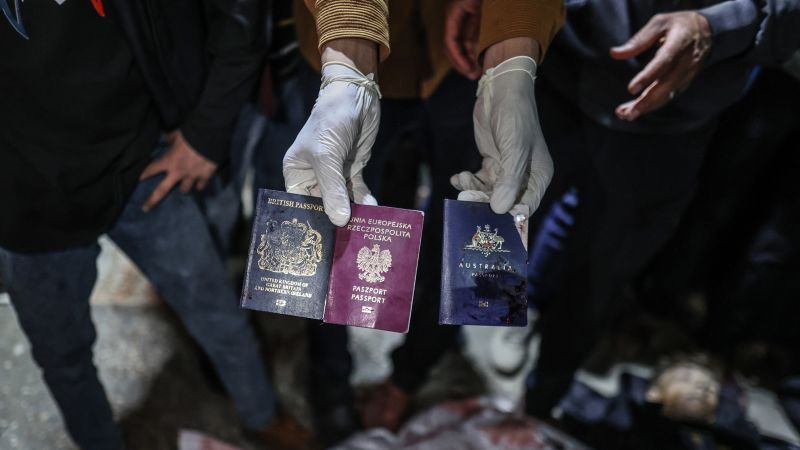
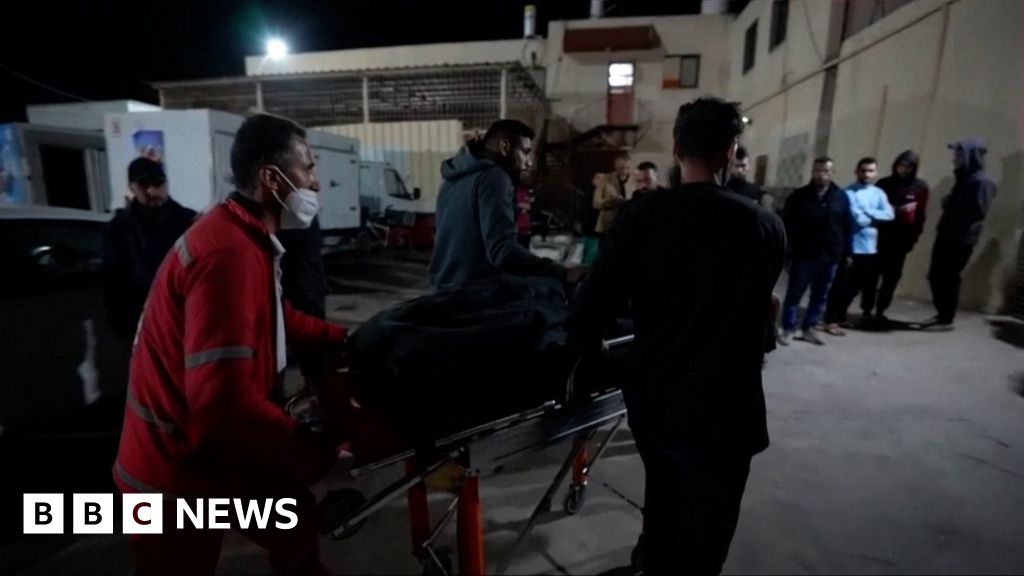




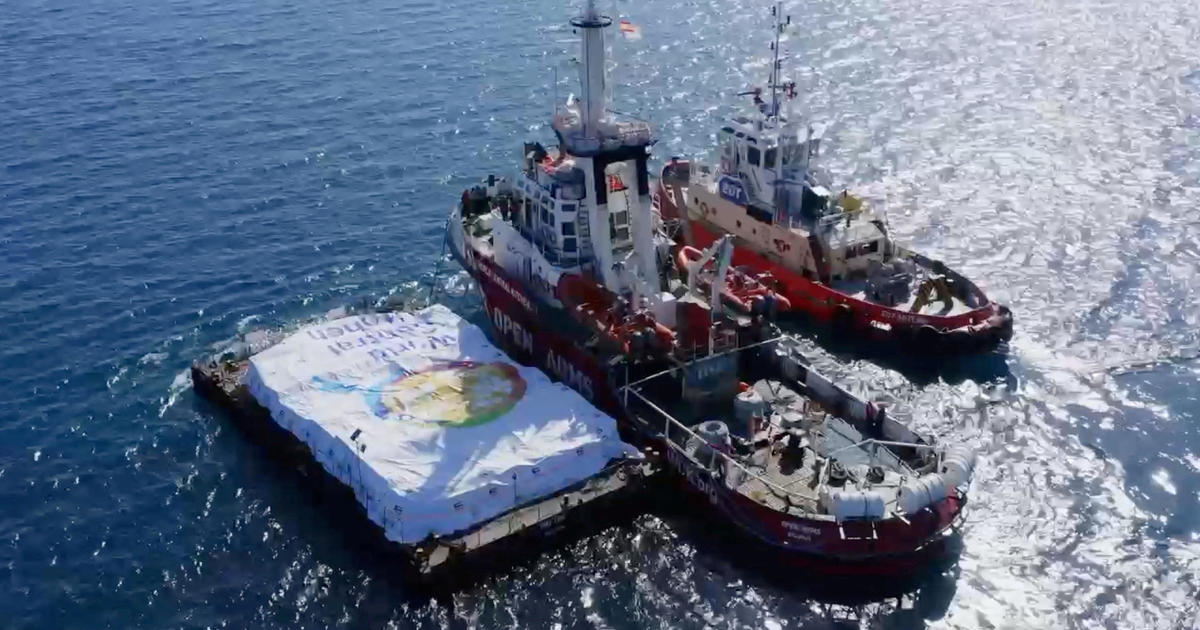
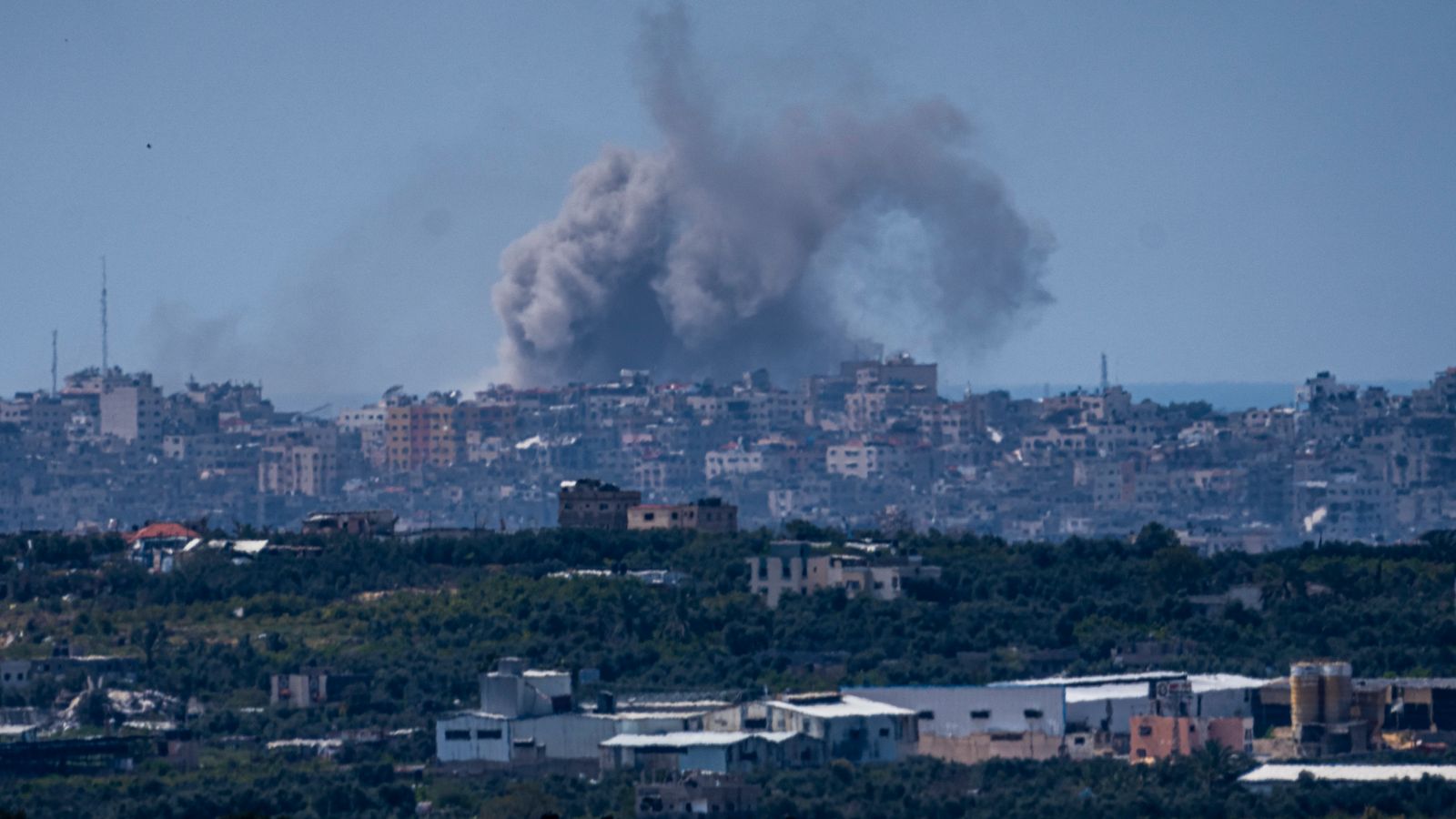

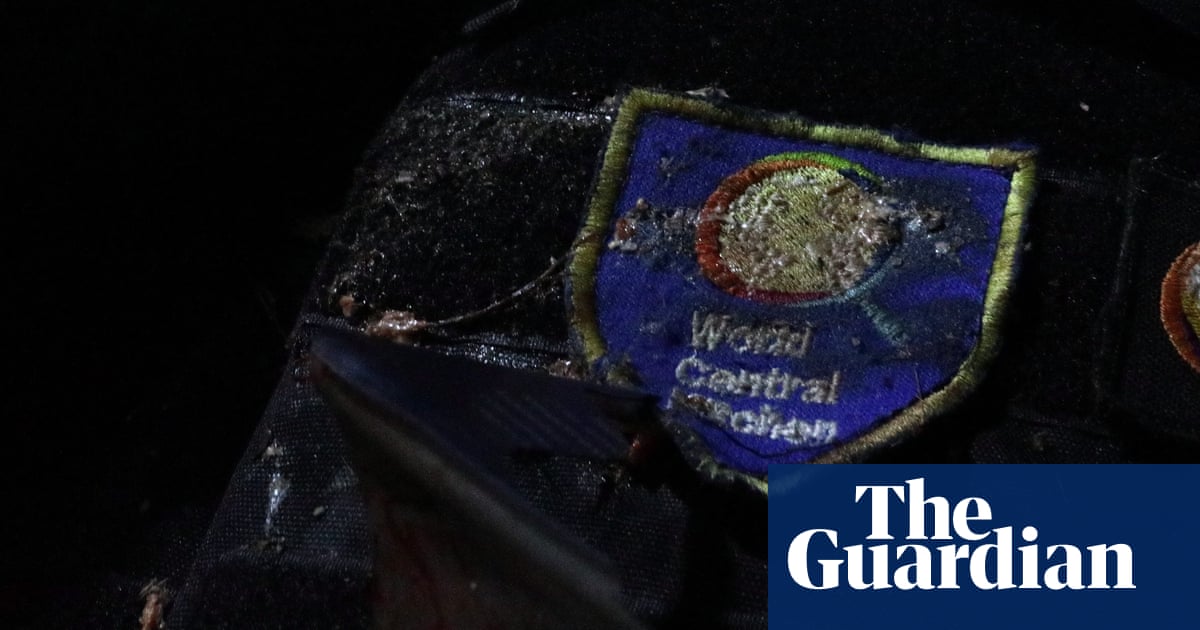


https://www.facebook.com/TheSunWorldNews/

https://www.theguardian.com/profile/ben-doherty

Yahoo! News

Sky News

CBS News

https://www.theguardian.com/profile/adam-fulton,https://www.theguardian.com/profile/josh-butler

Washington Post

NDTV

NPR

https://www.facebook.com/bbcnews

Caitlin Stephen Hu

ABC News

ABC News

By WAFAA SHURAFA and SAMY MAGDY

By THE ASSOCIATED PRESS

Al Jazeera

PANORA

PANORA

Wikipedia

PANORA

Wikipedia

Wikipedia

PANORA

Wikipedia

PANORA

PANORA

PANORA

Wikipedia

Wikipedia

PANORA

PANORA

Wikipedia

PANORA

PANORA

PANORA

PANORA

PANORA

PANORA

PANORA

Wikipedia